The exhibition “The Sign of Tomas Venclova”, exhibited at the National Library of Lithuania from September 13 to November 6, invited to take a fresh look at Tomas Venclova (b. 1937), a well-known poet, translator, literary researcher, professor, dissident and public figure.
The exhibition opened up different stages of Venclova’s life, spheres of activity, hobbies, friendships, and works. Looking back to the very origins of poet’s rich and meaningful life, the exhibition presented poems and a manuscript written by Venclova in his childhood, photographs testifying to his close relationship with the world of books from his early days, and his first books.
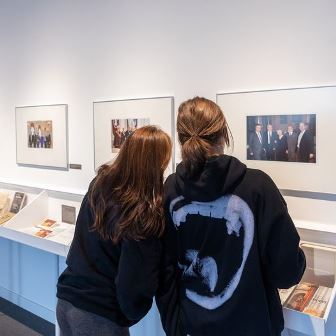
The exhibition included Venclova’s collection of poems Kalbos ženklas [The Sign of Language, 1972] published fifty years ago, which was the poet’s remarkable public debut and left a deep imprint on Lithuanian poetry of that time. This book also inspired the title of the exhibition. Other books of Venclova’s poetry and their translations into various languages were also on display.
Continue reading “Two Exhibitions Dedicated to Lithuanian Émigré Dissidents“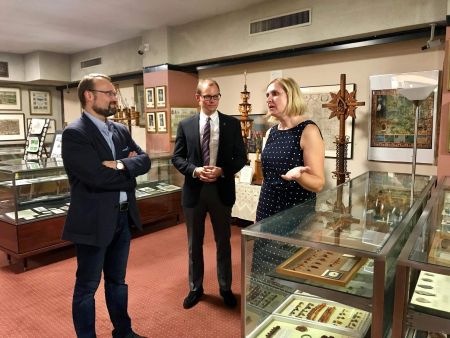
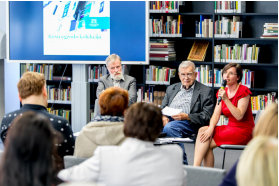
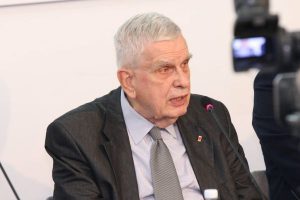
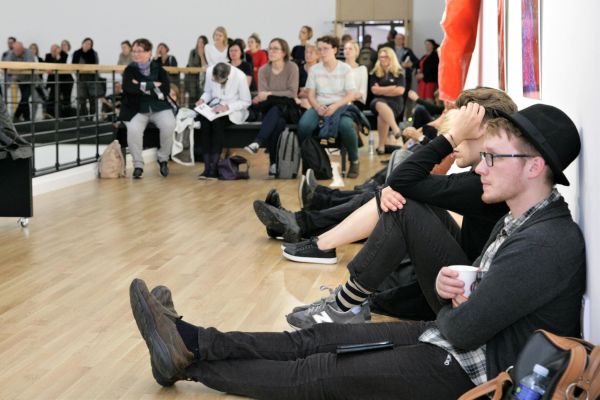
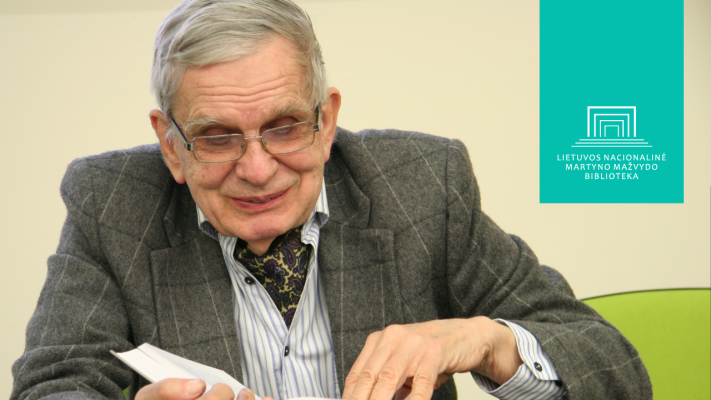 September 11, 2017 marks the 80th birthday of Tomas Venclova, a prominent Lithuanian poet, intellectual and Professor Emeritus at Yale University, US. While living in Soviet Lithuania, Venclova became a dissident. He left the Soviet Union in 1977. In the United States, Venclova formed a triumvirate with two other émigré poets from Eastern Europe, a Russian poet Joseph Brodsky and a Polish-Lithuanian poet Czesław Miłosz. Having lived in the US for decades, Venclova is still very involved in the intellectual life of Lithuania and Europe. In his writings and by his personal example, the poet encourages the cultural and historical dialogue and challenges prevailing stereotypes. Venclova’s poetry, which blends history and personal experiences, has been translated into over 20 languages.
September 11, 2017 marks the 80th birthday of Tomas Venclova, a prominent Lithuanian poet, intellectual and Professor Emeritus at Yale University, US. While living in Soviet Lithuania, Venclova became a dissident. He left the Soviet Union in 1977. In the United States, Venclova formed a triumvirate with two other émigré poets from Eastern Europe, a Russian poet Joseph Brodsky and a Polish-Lithuanian poet Czesław Miłosz. Having lived in the US for decades, Venclova is still very involved in the intellectual life of Lithuania and Europe. In his writings and by his personal example, the poet encourages the cultural and historical dialogue and challenges prevailing stereotypes. Venclova’s poetry, which blends history and personal experiences, has been translated into over 20 languages.